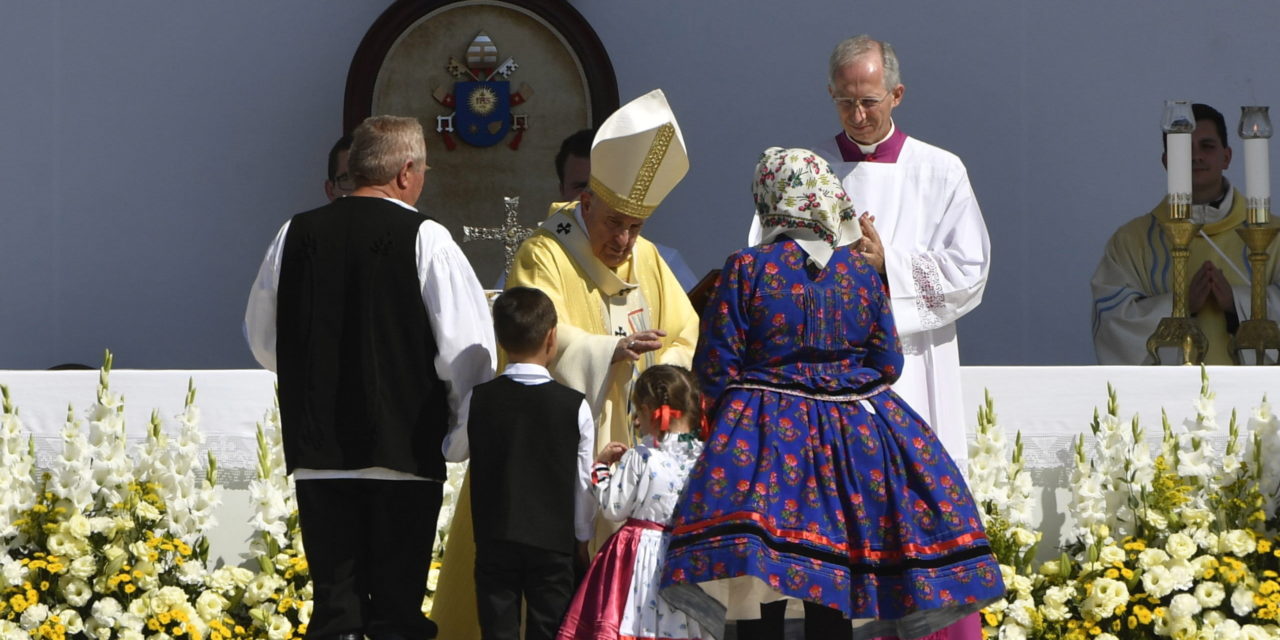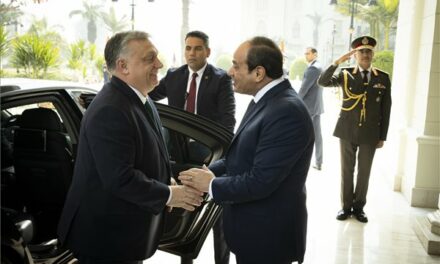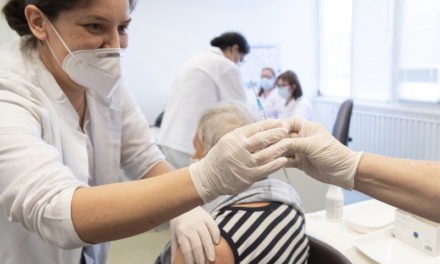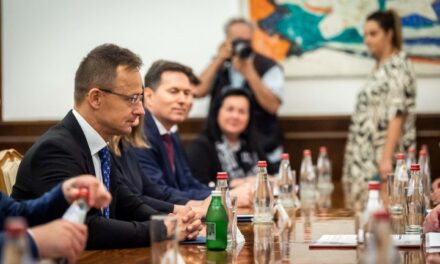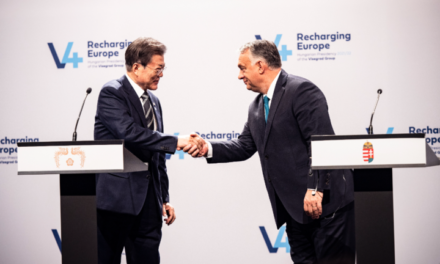Pope Francis mentioned the founder of the state St. Stephen and St. Elizabeth of Árpád-háza as role models of the encounter with Jesus in his speech at the closing mass of the 52nd International Eucharistic Congress (NEC) at Hősök Square in Budapest on Sunday.
Addressing the faithful, Pope Francis said that we must allow "the encounter with Jesus in the Eucharist to transform us, as it transformed the great and brave saints who were revered, such as St. Stephen and St. Elizabeth."
"Just like them, let us not be satisfied with little: let us not settle for a faith that lives only on ceremonies and repetitions," he added.
The head of the church noted that the NEK represents the end of a road, but "it should be more of a starting point".
Pope Francis began his homily with a question, asking what and who God means to each and every person. The precise answer should not be given on the basis of the catechism, but with our personal lives, said the head of the church.
He emphasized that the Eucharist reminds us who God is and does this not with words, but by tangibly showing that "God is the broken bread, the love nailed to the cross and given for others".
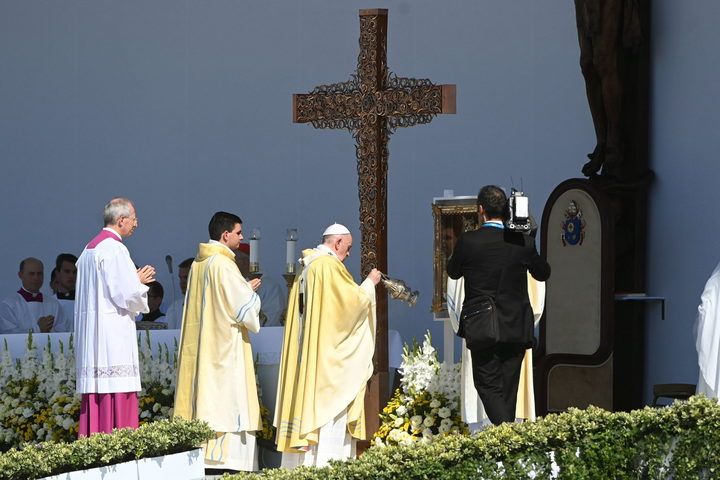
Pope Francis at the closing mass of the 52nd International Eucharistic Congress (INEC) on Hõsök Square on September 12, 2021. Photo: MTI/Noémi Bruzák
Pope Francis has repeatedly repeated that the cross has never been fashionable, neither in the past nor today, even though it brings "inner healing". He saw the debate and struggle over the cross as nothing more than a clash between the logic of God and the logic of the world. God's logic is humble love. God's way is far from all compulsion, self-righteousness and triumphalism, he always seeks the good of others, even to the point of sacrificing himself. On the other side, however, there is "human thinking," the logic of the world, which insists on esteem and privilege, seeks favor and success.
The head of the church added, "the difference is not in who is religious and who is not. The essential difference is between the real God and the god of our self".
"It is good for us if we do adoration before the Eucharist (..), let's make time for it," declared Pope Francis, who will say the Sunday afternoon prayer to the Archangel at the end of the mass.
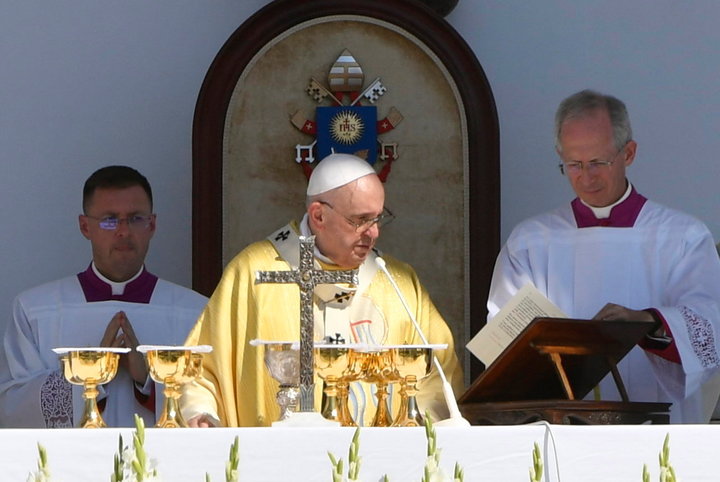
Photo: MTI/Zoltán Máthé
Pope Francis wished in the Angelus prayer (Angelus) recited in Hősök Square in Budapest that the cross would be the bridge between the past and the future.
The head of the Catholic church said that religious feeling is the lifeblood of the Hungarian nation, which is so closely connected to its roots.
"But the cross stuck in the ground not only prompts us to take root well, but also reaches high and opens its arms to everyone," he said.
Pope Francis emphasized that the cross "calls us to cling to our roots, but not to be satisfied with this; to draw from the source and give drink to all who are thirsty in our age”.
The head of the church wished the faithful to be "grounded and open, deeply rooted and respectful of others".
He emphasized that the Missionary Cross, the symbol of the congress, should encourage believers to use their lives to proclaim the "Gospel that sets you free, the good news that God loves all people with infinite tenderness."
"In today's love-hungry world, this is the food that every Hungarian yearns for," he said.
In his speech, Pope Francis thanked the "great Hungarian Christian family", which, he said, he would like to embrace with its "different rites, history, brothers and sisters belonging to Catholic and other denominations, who are all moving in the direction of complete unity".
The head of the Catholic Church then thanked Patriarch Bartholomew I of Constantinople, as well as the bishops, priests, monks and nuns present, as well as all believers, as well as the organizers and implementers of the International Eucharistic Congress.
"When I express my gratitude again to the state and religious leaders who welcomed me, I would like to say: thank you, the people of Hungary," he said.
"My blessing wants to reach everyone from here, in this big city, especially children and young people, the elderly and the sick, the poor and the excluded," he said.
Pope Francis - saying the last words in Hungarian - concluded his prayer by saying: "I say with you and for you: God bless the Hungarians!".
The Holy Mass ended with the singing of the Papal and Hungarian Anthems, the hymn of Our Lady, and then the congress hymn.
Among others, the President of the Republic János Áder took part in the Holy Mass; Prime Minister Viktor Orbán; Deputy Prime Minister Zsolt Semjén; László Kövér, President of the Parliament; Tamás Sulyok, President of the Constitutional Court; András Zs. Varga, president of the Kúria; Minister of Justice Judit Varga; Minister of Defense Tibor Benkő; Miklós Soltész, State Secretary of the Prime Minister's Office responsible for church and ethnic relations; Pál Schmitt, former head of state; Zoltán Lomnici, President of the Human Dignity Council, and Mayor Gergely Karácsony.
Source: demokrata.hu

